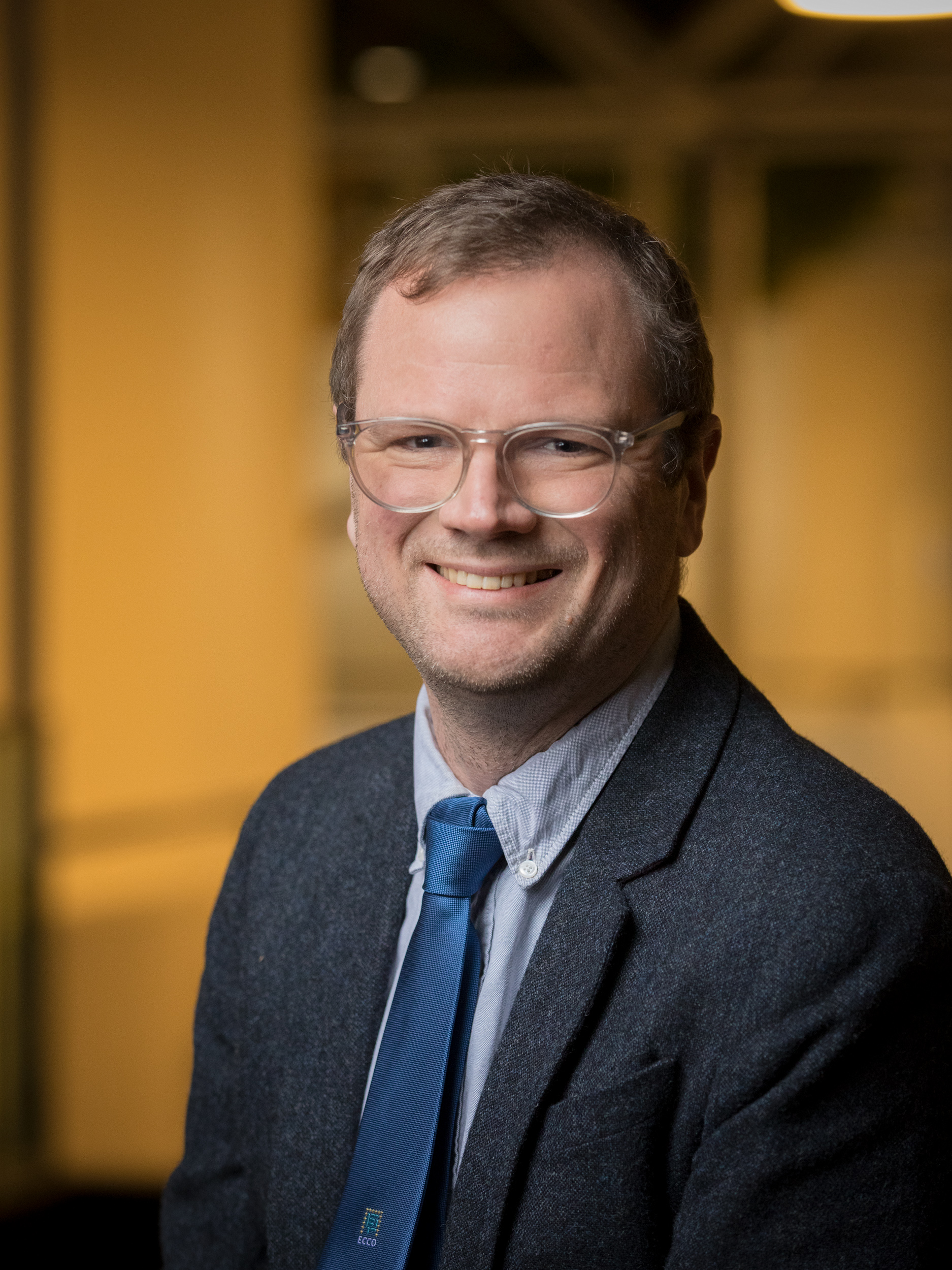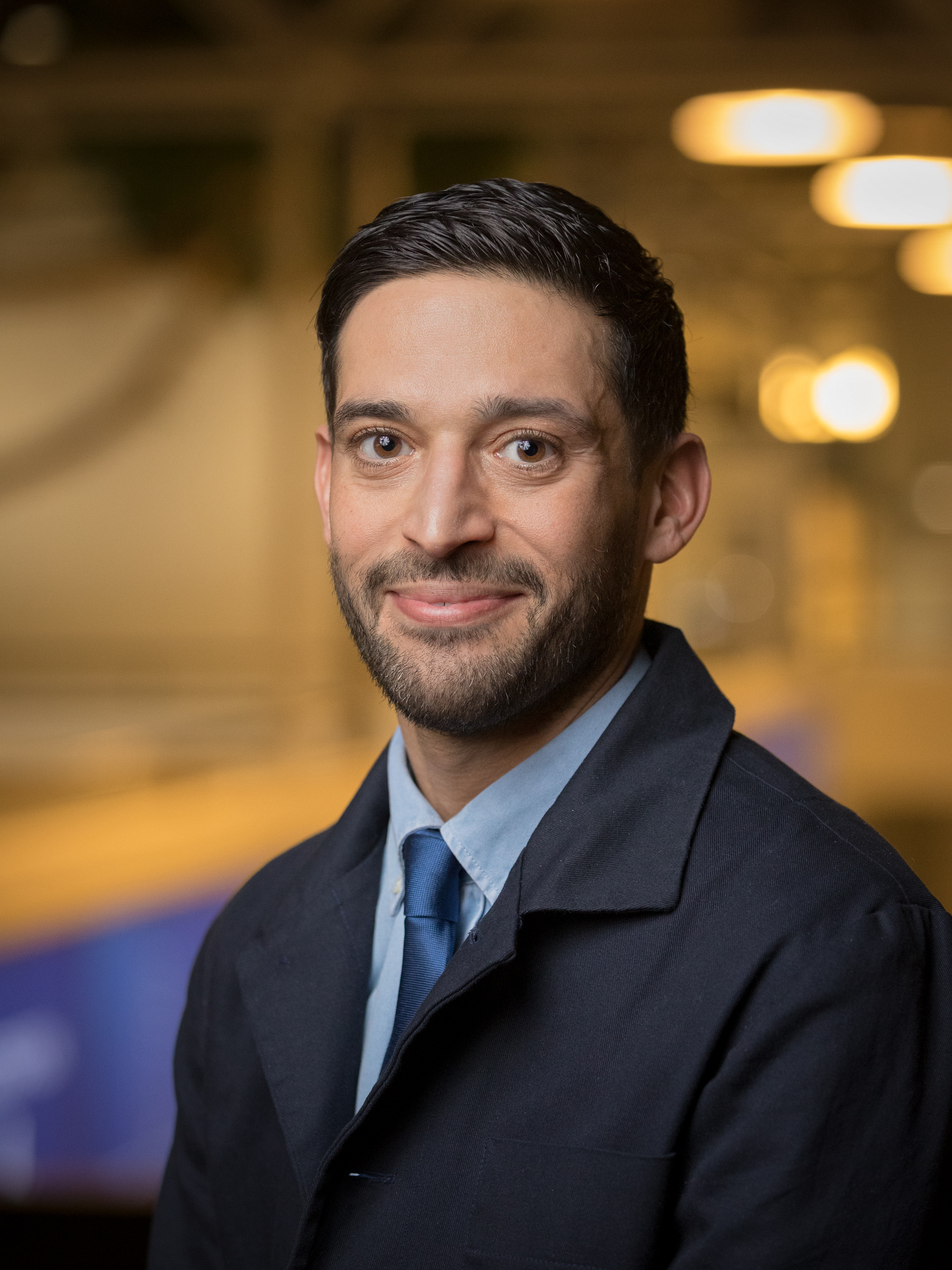Y-ECCO Interview Corner: Mark Samaan
Robin Dart, Y-ECCO Member
 Robin Dart Robin Dart© ECCO |
The Y-ECCO Interview Corner is a chance to get to know people inside ECCO. Mark Samaan has been a fixture on the Y-ECCO Committee since 2018, and is the current Chair. He is a consultant gastroenterologist with an interest in IBD clinical trials. He has had an education in IBD spanning two continents and is a keen swimmer. We sat down to talk about his experience in IBD, and what it’s like to support a football team who famously achieve very little.
Was gastroenterology what you always wanted to do, or is it something that you came to?
No. Actually, my parents were both anaesthetists and I always, perhaps slightly lazily, thought that that’s what I’d end up doing. I was sure I wanted to do something that was procedurally based, but as I went through my junior training, I started to really value the conversational interaction with patients that you don’t really get in anaesthetics. Gastroenterology really does have a fantastic mix of activities, and as soon as I feel like I’ve had enough of clinic I’m looking forwards to endoscopy and vice versa.
|
|
One of the great things about gastroenterology is its diversity. What was it about IBD that attracted you?
Just as I was doing my senior house officer (junior doctor) job in gastroenterology, I happened to read a really interesting article in the Guardian newspaper, in which a parent imagined writing a letter to her daughter’s immune system. Her daughter had Inflammatory Bowel Disease and it really conveyed the impact that the diagnosis can have on a young person and on the people around them. To this day, I’m not entirely sure why, but it really seemed to resonate with me and I’d encourage any IBDologist to read it (https://amp.theguardian.com/lifeandstyle/2009/jul/04/immune-system).
From then on, I looked for opportunities to get more involved in IBD medicine. It was then that I joined James Lindsay’s team at the Royal London and began working as a sub-investigator on the clinical trials he was running. The first trial I worked on happened to be the GEMINI programme of vedolizumab and from then on, I was hooked! So, when James came back from a meeting with a flyer advertising an international IBD clinical trial fellowship with Robarts (now Alimentiv) which promised to take a successful applicant to Amsterdam, San Diego and London, Ontario, I was certain to apply and very fortunate to get the position.
Those are quite some locations. How has travel and working abroad impacted you and your career to date?
In a word, massively. I spent the majority of my Robarts fellowship working with Geert D’Haens at the AMC in Amsterdam and, quite apart from what an exceptional institution that is, Amsterdam is just a really cool city to live in. My wife and I immersed ourselves in the culture (if not the language) and it remains a place we feel connected to, even now, 10 years on.
Seeing how Brian Feagan and the teams at the Robarts main office in London, Ontario work was also a fantastic experience and helped me make ongoing collaborations and friendships. I really enjoy reconnecting with the team there during central reader meetings at DDW and, of course, during the famed Robarts DDW parties! San Diego was also a very enjoyable experience – for any European clinician to see how the US healthcare system works is massively interesting. Plus, they have some fantastic swimming pools there.
Therapeutic drug monitoring (TDM) is something that many of us use regularly. You have been active in this field. Could you tell us about the GO-LEVEL study you were involved in?
I really have my mentor and now colleague, Peter Irving, to thank for my interest in TDM. It’s a field that he’s helped to shape and together we devised and ran a TDM study of golimumab that formed the basis of my MD thesis (GO-LEVEL). It was a formative experience as a young trialist to help design and perform a prospective study – the amount of administrative time spent on regulatory and ethical approvals can hardly be overstated – but getting it over the line in terms of recruitment, analysis and publication (https://pubmed.ncbi.nlm.nih.gov/32506695/) was a very proud moment. I hope it provided some novel insights into the use of golimumab, but just as importantly running lots of the TDM assays by hand finally allowed me to learn how to use a pipette!
Is there anything you would do differently if you were to do it again?
I think it’s fair to say that if I were to do it again today, I probably wouldn’t have the capacity to do the vast majority of the blood tests and golimumab administrations myself, as I did before. But that’s ok, as we’re lucky enough to have a great team of IBD Clinical Research Fellows as well as IBD Research Nurses at Guy’s and St Thomas’, who are currently running far bigger projects that GO-LEVEL ever was. An example is our current prospective study of randomised azathioprine withdrawal upon switch to subcutaneous infliximab (MINIMISE). I do wish we’d built in some translational questions to GO-LEVEL and that is something that we plan to do going forwards.
Do you think there is a role for therapeutic drug monitoring with current newer therapeutics?
I suppose that remains to be seen but I appreciate any role is likely to be far more limited than with anti-TNF agents. Having said that, it’s not as if we yet know all there is to know about TDM for anti-TNF. There’s already data on evaluating drug levels in tissue and, who knows, that may become a more feasible and useful measure as time goes by. We’re currently working on a study of the measurement of vedolizumab loss in stool and looking at how that may impact exposure and outcomes – hopefully we’ll find something clinically useful. I don’t think the TDM story is quite finished yet!
A major issue in IBD is understanding what the best therapeutic targets are for maximal benefit to patients. Selecting Therapeutic Targets in Inflammatory Bowel Disease (STRIDE) has been important in helping to focus minds on this important question. How did you get involved?
It’s now 10 years since I first started working on STRIDE as a bibliographic fellow – this was something that Geert (D’Haens), as a member of the International Organization for the Study of Inflammatory Bowel Disease (IOIBD), was kind enough to get me involved in. And what a thing it has turned out to be (a very small) part of – from writing statements for the consensus meeting, to being present for some of the leaders in IBD to discuss them and subsequently see how the initiative has genuinely changed practice for the better since publication of the first iteration in 2015. Since then, I’ve been asked to speak on it quite a bit and it’s been great to see how people’s appreciation of treat-to target as a concept has evolved over time. I’m fully resigned to the fact that it’s unlikely I’ll ever be named on an article that’s more widely cited – 1500 now and despite the second iteration being published a couple of years ago, it continues to be cited!
Mark, you are a very keen swimmer and general sportsman. I know you find a swimming pool wherever you go. How many k do you swim a week? And how do you manage to unwind when you support a football team who has not won their national league in your lifetime?
Ah, now we’re getting to the important stuff. I hope we didn’t lose too many readers along the way! I usually swim four times a week, 2k each swim. I think I love it mainly because it momentarily divorces me from my inbox. Running is similar, and I’m lucky enough to use that as my commute, but going directly through the centre of London is definitely less relaxing than a swim. I reckon I know all the best pools in the usual ECCO/DDW hotspots, as well as in Amsterdam, of course. I am, however, in grave need of tips for swimming in Stockholm, so would be very grateful for any readers could offer.
I was a keen footballer in my 20s/30s and used to captain my university first XI as well as the United Hospitals of London select XI, but nothing makes me feel more middle-aged these days than my semi-regular attempts at winding the clock back at 5-a-side. I’m a Spurs (Tottenham Hotspur) fan, and although your question alludes to the fact that trophies have been somewhat hard to come by recently (especially compared to our bitter rivals, and incidentally your team, Robin). I watched us go two points clear at the top of the Premier League a couple of days ago. I’m fully expecting this answer to age awfully but, for the time being, I’m daring to dream!
Mark, thank you for giving us an insight into your career and life. We have enjoyed having you as Chair of Y-ECCO and look forward to seeing you on another ECCO Committee soon. I am also well aware that through my gentle teasing I have near enough guaranteed Spurs some silverware this season.



 Mark Samaan
Mark Samaan